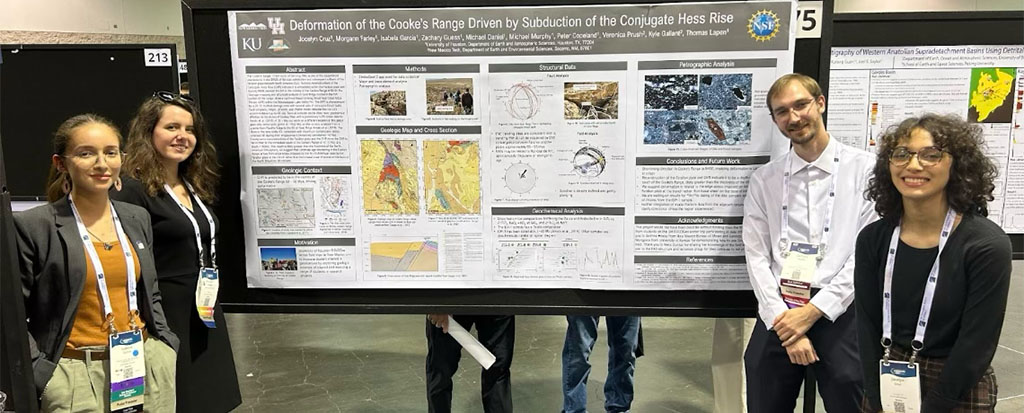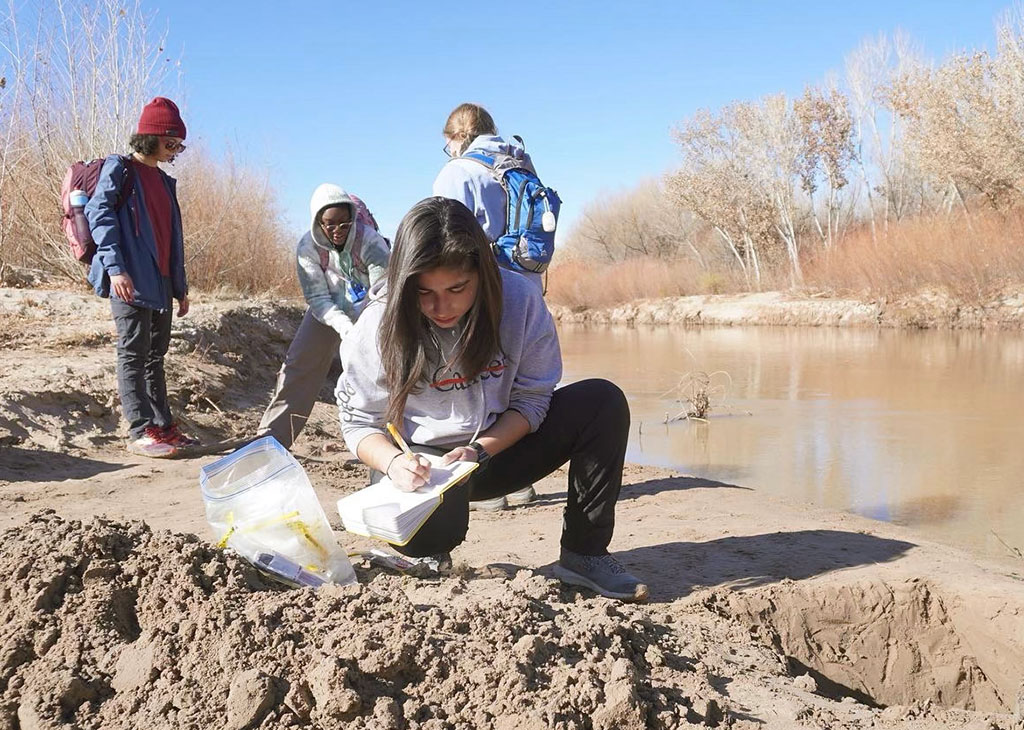Two Undergraduate Researchers Reflect on Their FIELDGeo Experience
Two Undergraduates Share How the 2024 Fieldgeo Trip Shaped Their Paths as Researchers—And Why the Experience Left a Lasting Impact
FIELDGeo is an NSF-supported winter field experience for undergraduate students in the EAS. Designed to provide immersive, hands-on exposure to geoscience education and research, the program takes students to sites in West Texas and New Mexico to explore topics ranging from structural geology to geomorphology. Unlike a formal course, FIELDGeo is not graded, and all travel costs are fully covered. Students work in small research teams and present their findings at professional meetings such as the Geological Society of America annual conference.
Two participants from the 2024 FIELDGeo trip reflect on how the experience shaped their growth as researchers and strengthened their connection to the geoscience community.
Isabela Garcia
“On the 2024 FIELDGeo winter trip, several other students and I worked on research projects across New Mexico. Stepping out of the van, we looked up at the mountain range we’d be exploring for just two days. Our project focused on understanding the tectonic history of the under-studied Cooke’s Range, with particular attention to Goat Ridge, located southwest of the main range. We collected structural data within a thrust fault zone, using the StraboSpot app to make field data collection more efficient and accessible.

Later that year, we flew to California to present our work at the Geological Society of America’s annual meeting in Anaheim. It was an amazing experience. We presented on the second-to-last day of the conference during an afternoon poster session and received great feedback from geologists who had worked in the area before. One of the best parts of the trip was connecting with other students from across the country—from UC Berkeley to the University of Puerto Rico. I even had the chance to meet with several potential graduate school advisors in person—something that wouldn’t have happened if I hadn’t attended.”
Sarah Garcia
“In January 2024, I began my undergraduate research project by leading my first fieldwork experience. While driving to New Mexico, I used the time to organize my thoughts and outline our group’s goals. As the leader of a team of over 50 students, I wanted to clearly communicate the importance of our research and created a simplified guide to help students stay focused on our objectives.

In the field, I encouraged students to take on roles that matched their interests, which fostered collaboration and ownership of the work. This approach also meant that I had to adapt quickly when unexpected challenges arose. This taught me critical problem-solving skills and how to evaluate and pivot between different field sites when needed.
Those lessons proved essential as I transitioned to graduate school. The foundation I built during this project—field planning, equipment handling, and leadership—made graduate-level research feel like a natural next step. Looking back, I realize how transformative that experience was. It shaped my approach to research and prepared me for the rigor of graduate study. What I learned in New Mexico didn’t just make the transition smoother. It propelled me forward in my research career.”
